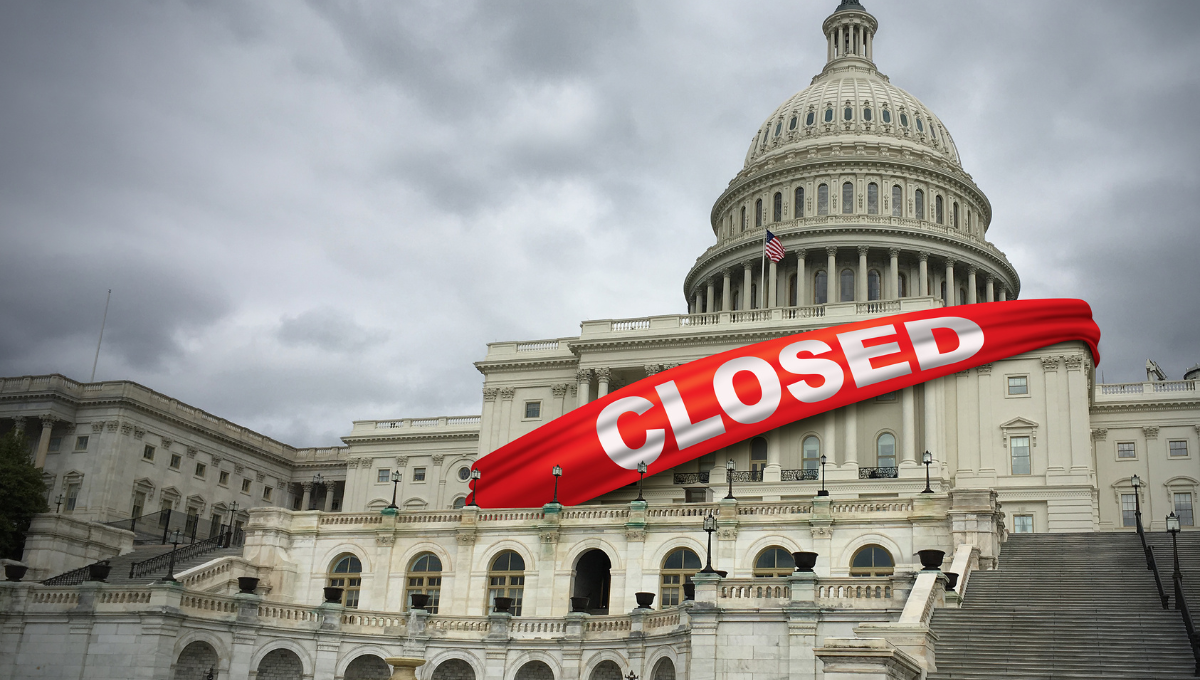
Understanding Government Shutdowns and Their Impact
What is a government shutdown and how or why does it happen?
A government shutdown happens when the government stops doing some of its jobs and services for a short time. This happens because Congress, which is in charge of approving the budget, can’t agree on how to spend the country’s money. If they can’t come to a decision before the current budget runs out, a lot of government work could stop.
This doesn’t mean the government as a whole stops working. The military, police, and emergency medical services continue to work. But many services and agencies that aren’t essential might temporarily close or cut back on what they do.
It’s kind of like when a company can’t decide on a budget for the year. They might put some projects on hold or wait to hire people until they figure out what’s going on. In the same way, the government has to decide how to spend its money, and differences of opinion can lead to shutdowns.
How does a government shutdown affect me?
During a government shutdown, some public services might slow down or stop completely. For example, national parks could close and some government websites might not be updated. If you need a government permit or license, you might have to wait longer than expected.
If you work for the government or for a contractor that gets money from the government, you might be out of work for a while. When the shutdown is over, many government workers get back pay, but contractors might not be so lucky.
Different things can happen to the general public. Some people might not notice much change in their daily lives, but others, especially those who depend on certain government services, might have trouble.
Will a government shutdown affect veteran affairs?
The Department of Veterans Affairs (VA) is an essential service, so many of its tasks continue even when the government is closed. This means that most hospitals, clinics, and other places where veterans can get health care stay open.
But there could be delays in some administrative parts of the VA. For example, there could be delays if you have applied for VA benefits or are waiting for a claim to be processed.
During a shutdown, it’s always a good idea to check with local VA offices or their official website to find out specifics. They will keep you up to date on what services are affected and what is still running as usual.
Does a government shutdown affect USCIS and immigration services?
The U.S. Citizenship and Immigration Services (USCIS) is mostly paid for by the fees people pay to use its services. It doesn’t just rely on money from the government. Because of this, a lot of its work keeps going even when the government is closed.
But some functions that depend on funds that have already been set aside might be affected. This could cause some applications or petitions to take longer to process. Check the USCIS website for updates if you are in the middle of an immigration process.
Remember that many USCIS services will still be available, but other immigration-related tasks that are handled by other departments may be affected. Stay up-to-date and check official sources often.
What will a government shutdown affect?
Depending on how long it lasts and where Congress can’t agree, a government shutdown can affect many different parts of our lives. As was already said, important services like the military, police, and emergency services keep going. But many services that aren’t as important might stop.
For example, government-funded research projects could end, some public museums and national parks could close, and some federal workers could be sent home without pay. Also, economic reports and other types of data could be released later than expected, which could hurt businesses and investors.
It’s a complicated situation with effects that can be felt all over. But if you know what’s going on and are ready, you can get through a government shutdown with little trouble.
Easing Your Concerns About Government Shutdowns
When you hear the words “government shutdown,” it’s normal to worry. Even the name can sound scary. But it’s important to keep in mind a few key things that will help you put things in perspective and calm down.
First, government shutdowns have happened before and usually end in time, even though they are not ideal. Most of the time, they are caused by political disagreements. They can cause short-term problems, but they don’t mean that the government is falling apart or that essential services will stop for good.
Second, most of the essential services are still running. This means that many of the most important parts of society are still running, like security, health care, and emergency services. Even though things are hard right now, the government is set up to make sure that essential services keep running.
Lastly, keep in mind that everyone knows how important it is to end a shutdown, from government workers to elected officials. All of us are working to get things back on track. In the meantime, stay informed, talk to local agencies about specific problems, and remember that this too shall pass.
Actionable Steps to Prepare for and Navigate a Government Shutdown
While the hope is always that government shutdowns are resolved quickly, it’s wise to be proactive. Here are some actionable steps you can take to prepare for and navigate these uncertain times:
- Stay Informed: Regularly check reputable news sources for updates on the status of the shutdown and any potential resolutions. Government websites will also provide direct information about which services are affected.
- Budget Wisely: If you’re a government employee or contractor, consider setting aside an emergency fund to cover expenses in case of delayed pay. Even if you’re not directly affected, it’s always a good idea to have savings for unexpected events.
- Reach Out: If you rely on government services, contact the relevant agency ahead of time to understand how they might be impacted. This can help you plan and make alternative arrangements if necessary.
- Stay Proactive with Applications: If you’re in the process of applying for government benefits, permits, or other services, ensure all your documentation is in order and submitted promptly. This can help reduce potential delays.
- Visit Alternatives: If places like national parks or museums are closed, consider local parks, state parks, or private museums for your recreational or educational needs.
- Community Support: Engage with your local community. Neighbors, local organizations, and businesses often come together during shutdowns to support one another, whether it’s sharing resources or providing services.
- Stay Calm and Patient: Understand that many government employees and officials are working hard to resolve the situation. While it’s frustrating, remember that getting agitated won’t speed up the process. Instead, focus on what you can control and make the best of the situation.
- Plan Ahead: If you’re considering traveling or engaging in activities that might require government services, check in advance. For instance, if you’re planning a trip to a national park, verify its operational status before heading out.
By taking these proactive steps, you can better position yourself to handle the challenges of a government shutdown. Remember, preparation and a calm approach are key to navigating these situations smoothly.
In Conclusion
Even though government shutdowns are scary and often inconvenient, they are only temporary and have been dealt with in the past. We can lessen the effect they have on our daily lives by understanding how they work, staying informed, and taking precautions. It’s important to keep in mind that essential services are still running and that everyone is working together to fix the problem. When things aren’t clear, the fact that we can stay calm, up-to-date, and ready shows how strong and adaptable we are. This problem, like many others, will go away, and if we work together to solve it, we will be stronger and more united when it does.




















